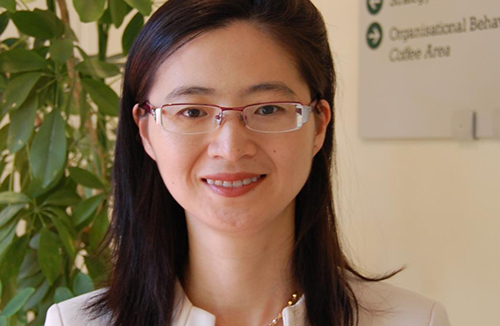Luo’s research tries to blend all stereotypes that are associated with the so called glass ceiling out. Instead, the professor focuses on the women’s side of things. By doing that Luo found that women’s own assumptions often are an obstacle for their career advancement. For example: Many women would hold themselves back by believing that they have to make choices, for example between a family and a career. The research also found that women are much less confident in their own abilities than men.
In reality and according to the study men and women do not really differ in perceived leadership effectiveness. In fact, in some contexts women are rated as significantly more effective than men. “However when it comes to self-assessment, men rate themselves as significantly more effective than women do”, says Luo.
Many men start their career with the goal of leadership, networking, mingling with the right people, taking the right positions and completing an MBA, whilst women expect their career to be temporarily interrupted by outside obligations like a baby break, caring for family members or following a husband for his career advancement.
According to Xiaowei Rose Luo, however, these interruptions can be turned into strengths. The professor cites Steve Jobs whose dismissal by the Apple board was a huge interruption. “But he took the opportunity to set up a smaller company and diversify into the entertainment industry”, the Insead expert writes. “When he returned to Apple his outside experience helped him make an even greater contribution to Apple’s success.”
Another widespread assumption according to Luo is that a woman with a family will not be able to invest enough time into a senior leadership role. But these roles often come down to clever decision-making, which requires more quality than quantity of invested time.
The professor supports this view with a 2011 study on workplace flexibility and family friendly policies which suggests that increased flexibility correlates positively with job engagement, job satisfaction, employee retention, and employee health. “There are many organisations and government departments which now acknowledge that good family policies attract better talent, which in turn raises productivity”, writes Luo.
Find full report here: Are Women’s Leadership Assumptions Holding Them Back?

